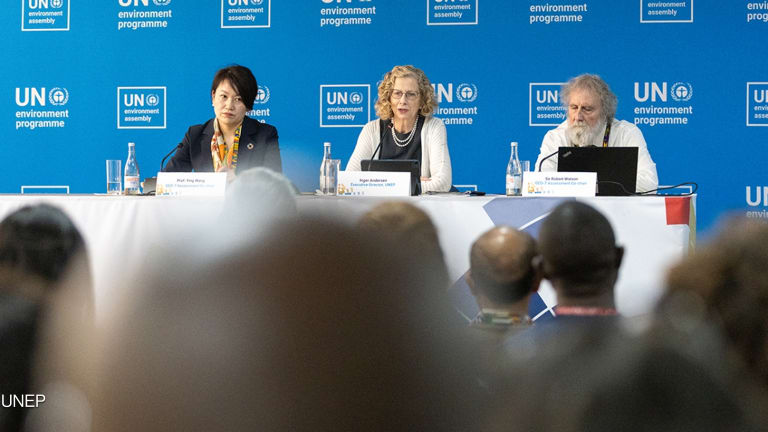
The World Health Organization is calling for more climate financing for health, saying current multilateral funding is not enough.
Sign up for Devex CheckUp
The must-read weekly newsletter for exclusive global health news and insider insights.
In a special report published ahead of the 2021 United Nations Climate Change Conference, or COP 26, WHO identified 10 recommendations for governments to safeguard people’s health and the planet. Among the recommendations is for governments to “finance a healthier, fairer and greener future to save lives,” which includes ending fossil fuel subsidies, and investing in health adaptation and resilience.
Fossil fuel subsidies reached $5.2 trillion in 2017, while less than 0.5% of multilateral climate finance is allocated to health projects, according to the report.
It adds that over 90% of people “breathe unhealthy levels of outdoor air pollution,” largely from burning fossil fuels. WHO estimates 7 million premature deaths occur every year due to air pollution.
Why this matters: “25% of the global burden of diseases is linked to environmental risk factors that could be modifiable. Is 25[%] the figure that we would like to see now [in] climate finance to protect health? Maybe this will be too ambitious, but [we need] at least more than what we have now,” Dr. Maria Neira, director of public health and environment at WHO, said in a press briefing Monday during the report’s launch.
Neira said countries recognize the impact of climate change on health, but this doesn’t always translate to funding allocations.
UNFCCC chief: $100B climate finance target must 'go up'
U.N. Framework Convention on Climate Change Executive Secretary Patricia Espinosa says the $100 billion a year in climate finance is only a jumping-off point.
There are a number of ways climate finance can be used for health. One example is building or retrofitting health facilities so they are greener and more resilient to climate risks, said Dr. Diarmid Campbell-Lendrum, head of climate change and health at WHO.
More than 450 organizations representing over 45 million health workers also signed an open letter on Monday calling on governments to limit global warming to 1.5 degrees Celsius and rapidly transition away from fossil fuels, saying the “climate crisis is the single biggest health threat facing humanity.”









